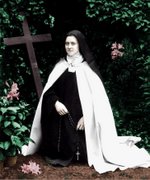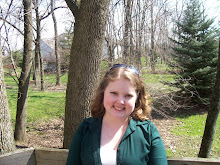Great piece from the Manilla Bulletin on JP the Great and B XVI. Comments to follow.... (long, but worth it!)
I DON’T have to wait for international magazines like Time and Newsweek to tell the world what have been the most significant happenings of 2005. I am sure both Christians and non-Christians all over the world will agree that the death of Pope John Paul II and the election of Pope Benedict XVI have been the most momentous events during this year that is ending. The lives, actions, and words of these two intellectual giants will reverberate for many decades and centuries to come.
I couldn’t find a more fitting way to pay tribute to these two Popes who have inaugurated the Third Millennium than to share with my readers an interview that Pope Benedict XVI gave to the public television station in Poland last October 16, 2005, the day established by the Polish Parliament as Pope John Paul II Day to commemorate his election as Pope in 1978. The transcript of the interview appeared in the October 16, 2005 issue of Zenit International News Agency.
First, the present Pope talked about how his friendship with Cardinal Karol Wojtyla began: "I met him personally during the two pre-conclaves and conclaves of 1978. Naturally I had heard about Cardinal Wojtyla, especially in the context of correspondence between the Polish and German bishops in 1965. The German cardinals told me about the great merits and contribution of the cardinal of Krakow and how he was the soul of this historic correspondence. I had also heard from university friends about his stature as a philosopher and thinker. But, as I said, the first personal encounter took place during the conclave of 1978. I liked him from the beginning and, thanks to God, without any merit on my part, the then cardinal immediately made friends with me.
"I am grateful for this trust that he showed me. Above all, when I watched him pray, I saw and understood that he was a man of God. This was my first impression: A man who lives with God and in God. I was also impressed by the unprejudiced cordiality with which he made my acquaintance. On various occasions, he addressed these pre-conclave meetings of the cardinals, and it was here I had the opportunity to experience his stature as a thinker. Without using big words, he created a heartfelt relationship and immediately after his election as Pope, he called me to Rome several times for talks and in the end, he appointed me prefect of the Congregation for the Doctrine of the Faith."
These two Popes of modern times have a common lesson to teach all of us. What makes a man truly influential for good is not his intelligence or cunning. It is first and foremost a life of prayer. Prayer connects us to the omnipotent God who is the One who accomplishes any good we do. We are mere instruments. Pope John Paul II and now Pope Benedict XVI are examples of complete docility to the promptings of the Holy Spirit.
When asked what, in his opinion, are the most significant moments of the more than 25 years of John Paul II’s pontificate, Pope Benedict XVI replied: "We can see it (the Pontificate) from two perspectives: One (’ad extra’) – toward the world and the other (’ad intra’) – toward the Church. With regard to the world, it seems to me that through his speeches, his person, his presence, his capacity to convince, the Holy Father created a new sensitivity for moral values, for the importance of religion in the world. This has created a new opening, a new sensitivity towards religion and the need for a religious dimension in man. Above all, the importance of the Bishop of Rome has increased immensely.
"Despite the differences and despite their non-recognition of the Successor of Peter, all Christians have recognized that he is the spokesman of Christianity. No one else in the world, on an international level can speak in the name of Christianity like this and give voice and strength to the Christian reality in the world today. He was the spokesman of the great values of humanity for non Christians and other religions too. He managed to create a climate of dialogue among the great religions and a sense of common responsibility that we all have for the world. He also stressed that violence and religion are incompatible and that we must search for the path to peace together, taking common responsibility for humanity.
"Regarding the situation of the Church, I would say that, first of all, he knew how to infuse enthusiasm for Christ in young people. This is something new, if we think of the youth of late (’60s and) ’70s. That youth has become enthusiastic for Christ and for the Church and for difficult values. It was his personality and charisma that helped mobilize the youth of the world for the cause of God and for the love of Christ. In the Church, he created a new love for the Eucharist.
"We are still in the Year of the Eucharist, called by him with so much love. He created a new awareness of the greatness of divine mercy; and he deepened devotion to Our Lady. In this way he guided us toward an internalizing of the faith and, at the same time, toward a greater efficiency. Of course we have to mention his essential contribution to the great changes in the world in 1989, contributing to the collapse of socialism."
As the Eucharist was the ultimate gift Jesus Christ left mankind before He suffered and died for us, Pope John Paul II’s last legacy to us was the Year of the Eucharist. In gratitude, every Catholic must grow in his or her devotion to the Holy Eucharist. Let us await eagerly the Apostolic Exhortation that Pope Benedict XVI will issue, which will be based on the propositions presented to him by the Synod of Bishops on the Eucharist.
On a more personal note, the interviewer asked Pope Benedict XVI the following question: "Holy Father, often in your speeches, you evoke the figure of John Paul II, and of John Paul II, you say he was a great Pope, a venerated late predecessor. We always remember the words you pronounced at the Mass last April 20, words dedicated precisely to John Paul II. It was you, Holy Father, who said – and here I quote–) ‘It seems as though he is tightly holding my hand, I see his laughing eyes and I hear his words, which at that moment he is directing to me in particular: ("Do not be afraid!"’ Holy Father, finally a very personal question: "Do you continue to feel the presence of John Paul II, and if you do, in Benedict XVI."
The answer of Pope Benedict XVI stresses the complete continuity between the two papacies Those who expect any so-called softening on moral teachings will be terribly disappointed. (emphasis mine) The present Pope will not be a man of many documents. As he says, he will make sure that the teachings of Pope John Paul II will be fully assimilated by the faithful: "Certainly, I’ll begin by answering the first part of your question. Initially, in speaking of the Pope’s legacy, I forgot to mention the many documents that he left us – 14 encyclicals, many pastoral letters, and others. All this is a rich patrimony that has not yet been assimilated by the Church.
"My personal mission is not to issue many new documents, but to ensure that his documents are assimilated, because they are a rich treasure, they are the authentic interpretation of Vatican II. We know that the Pope was a man of the Council, that he internalized the spirit and the word of the Council. Through these writings he helps us understand what the Council wanted and what it didn’t. This helps us to be the Church of our times and of the future. (emphasis mine)
"Now for the second part of your question. The Pope is always close to me through his writings: I hear him and I see him speaking, so I can keep up a continuous dialogue with him. He is always speaking to me through his writings. I even know the origin of some of the texts. I can remember the discussions we had about some of them. So I can continue my conversations with the Holy Father.
"This nearness to him isn’t limited to words and texts, because behind the texts, I hear the Pope himself. A man who goes to the Lord doesn’t disappear: I believe that someone who goes to the Lord comes even closer to us and I feel he is close to me and that I am close to the Lord.
"I am near the Pope and now he helps me to be near the Lord and I try to enter this atmosphere of prayer, of love for our Lord, for Our Lady and I entrust myself to his prayers. So there is a permanent dialogue and we’re close to each other in a new way, in a very deep way."
Like Pope Benedict XVI, each one of us can also be close to the late Holy Father, who stepped on Philippine soil three times, the last two as Pope, once in 1981 and then in 1995. Many of us can recall an encounter or two with him. Let us cherish this memory and, like the present Pope, entrust ourselves to his prayers. Let his first words as Pope continue to ring in our ears: "Be Not Afraid." Guided by him, let us give ourselves entirely to the Mother of God – Totus Tuus who in turn will surrender us entirely to her beloved Son Jesus.
What a great piece! I especially enjoy the part about no "softening" of church doctrine, and how Benedict XVI sees his goal as assimilating what JP II gave us into the Church's doctrine. Those are worthy, spirit-filled goals that I, and many other Catholics, wholeheartedly embrace. I am always glad that he was chosen Pope--good choice, Cardinals! (Or should I say "Holy Spirit?")
Subscribe to:
Post Comments (Atom)



No comments:
Post a Comment